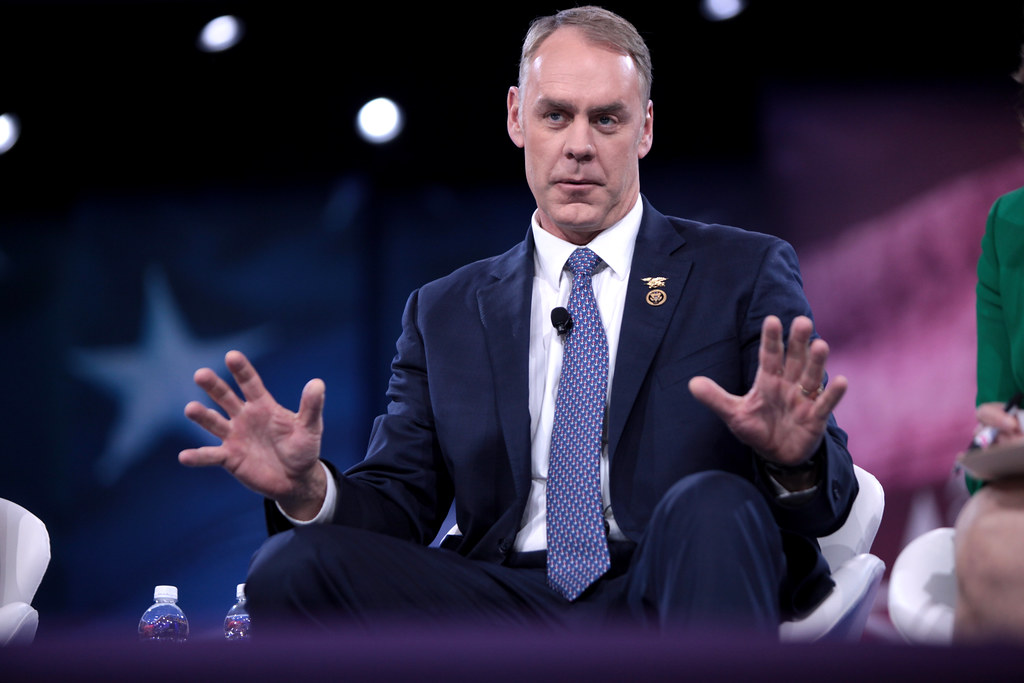The Safeguarding Americans from Extremism Act, proposed by Congressman Ryan Zink, risks undermining the existing provisions that offer protection to people facing a severe humanitarian crisis in Gaza.
Congressman Zinke has brought forward legislation that would block individuals with a Palestinian Authority-issued passport from entering the United States. The SAFE Act was presented to Congress on Nov. 2 and has since been co-sponsored by 10 representatives from states including Florida, Texas and Arizona.
The bill would restrict the Department of Homeland Security from granting Palestinian Authority passport holders Temporary Protected Status, Parole, Refugee or Asylum Status. It would also revoke any visas issued from Oct. 1.
DHS and its U.S. Citizenship and Immigration Services division are responsible for reviewing the cases of individuals outside the U.S. and granting humanitarian parole.
They decide based on “Whether or not the circumstances are pressing; The effect of the circumstances on the individual’s welfare and well-being; and the degree of suffering that may result if parole is not authorized.”
The crisis in Gaza has subjected civilians to insufficient healthcare, food and electricity. Civilians are facing potential outbreaks of waterborne diseases while experiencing a shortage of clean water supply.
The SAFE Act challenges the protection provided by the humanitarian parole policies of the DHS that have been in place for over 70 years to help people gain access to urgent resources and safety services as is necessary now for the civilians in Gaza.
Based on the criteria for humanitarian parole set by the DHS, the circumstances in Gaza constitute justification for non-United States citizens to be permitted temporary entry under refugee or humanitarian parole status as the situation progresses.
Despite Zinke insisting that the SAFE Act is “anti-Hamas” and is “necessary to keep Americans safe,” the motive for proposing this legislation is rooted in a fear of “Palestinian terrorists” entering the U.S.
Zinke’s proposed act would generalize an entire community and paint them as a threat to U.S. national security.
This sentiment is incredibly harmful to the process of granting humanitarian parole. It adds stress to the situation because it effectively eliminates an alternative option for humanitarian aid for Gazan civilians and an outlet to escape the worsening environment.
Rep. Zinke’s bill received backlash from congress members on the left including Congressman Ted Lieu, who compared the bill to “Trump’s Muslim Ban on steroids.”
Additionally, representatives André Carson, Ilhan Omar and Rashida Tlaib have released a joint statement expressing their concerns that the SAFE Act would perpetuate Islamophobic and anti-Arab sentiments across the country.
As the only representative in Congress of Palestinian origin, Rep. Tlaib has actively spoken out against the SAFE Act and advocated for de-escalation. Yet, she has been censured by Congress for her words on the matter.
Meanwhile, statements from representatives such as Rep. Max Miller who has said that Palestine will be turned “into a parking lot” or Rep. Brian Mast who compared Palestinian civilians to militants, fail to recognize the damage that could occur to U.S. society.
Allowing these political figures’ harmful statements only fuels the proposal to bar refugee and asylee entry into the United States, as the SAFE Act suggests. It enables government officials to limit DHS practices despite members of the president’s cabinet openly recognizing a demand for aid.
If passed, the SAFE Act would dismiss the much-needed attention toward the crisis in Gaza. The United States has the capacity to provide Temporary Protected Status to Palestinians as needed. This option should not be eliminated due to general assumptions and fear toward a community.






